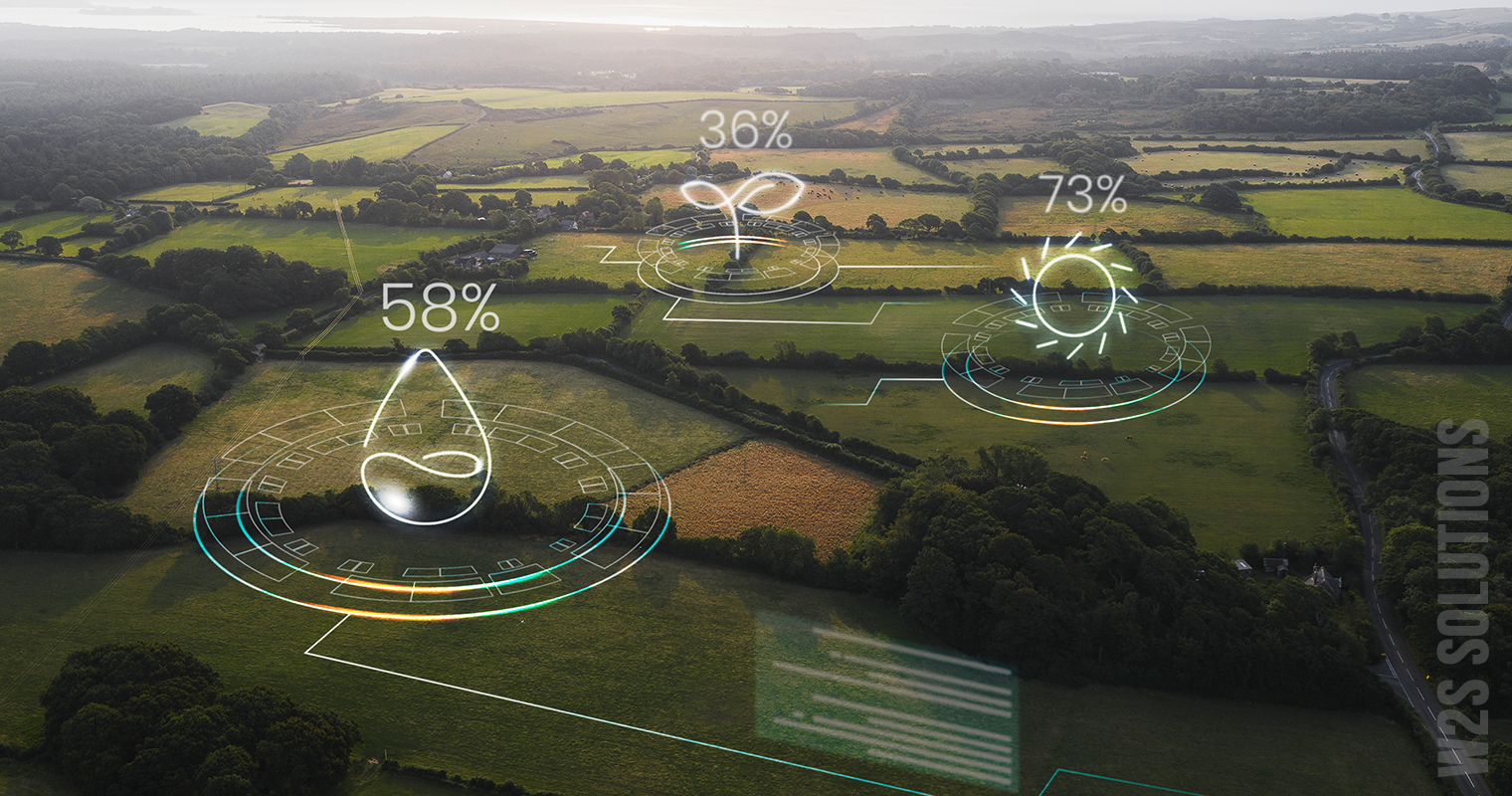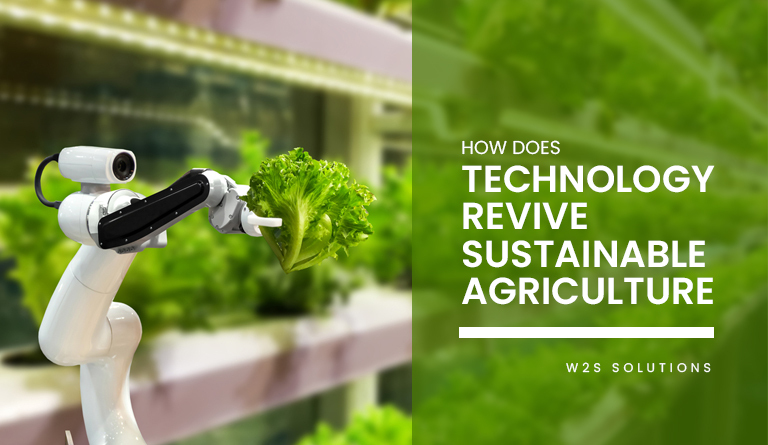We have come across terms like smartphones, smart speakers, smart homes, smart assistants, smart car, etc, etc…. but, have you ever wondered what the word “smart” stands for? The devices that can connect to a central network like the internet to collect, store, accumulate, transfer, and infer data are known as smart devices.
So, a smartphone is nothing but a regular phone that is capable of doing all the above operations to improve the user experience or gather user data for business insights.
As the world is steadily leveraging technology to digitalize its functions, smart farming is probably the most anticipated change. Many tech giants are now focusing on providing smart farming solutions across the globe.
It is no wonder that some of the most notable IT consulting companies are making their way into smart farming. The size of the agriculture industry is enormous, and can only grow in the future.
How can smart farming solutions impact the global economy?
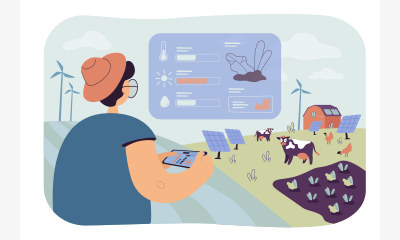
Smart farming solutions can streamline the industry by a great margin. The agriculture sector is under the primary sector division for a reason. This is one of the most versatile industries with the demand steeply increasing than the previous day.
Different parts of the world follow different customs and practices when it comes to agriculture and farming methods. Most people relate this industry to that of a spiritual force and are connected to these practices at an emotional level.
Transforming this industry through smart technology allows global leaders to approach the agricultural sector scientifically.
This makes it a suitable ground for B2B markets to establish their presence. There are many agricultural app development companies that are actively changing the demography.
There are also many mobile development companies coming into the picture to create user-friendly applications that can be a great help for farmers.
For instance, a mobile application to monitor the inventory or help in stock management can have a positive impact on farming practices.
Apart from the innovations in the industry, introducing smart farming technology in the market can help optimize the output and increase the overall efficiency of the process.
The pandemic has posed a greater challenge on many countries and it is important for the country to satisfy the primary needs of the citizens to prevent inflation of the economy.
By monitoring the agricultural produce and devising ways to increase the products can help cushion the country’s economy and can also boost the exports of these products.
Smart farming solutions can also drastically change the precision farming methods which is already a billion-dollar market!
Read Also – The Role of RPA in the Education sector
Latest trends in smart farming
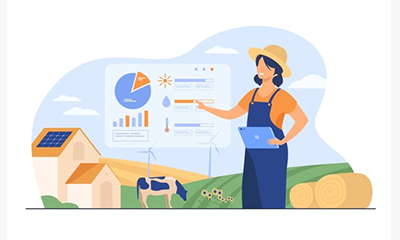
A report from United Nations suggests that the global population would be around 9.7 billion by 2050. This is directly proportional to agricultural production. If this happens, then the agricultural production is supposed to rise 69% by that time.
Smart farming solutions are by nature a wider concept. The field is constantly expanding to keep up with the global demand for agricultural produce.
Different technologies and IT tools are now being used to facilitate smart farming technology. farmers across the globe are now using things like,
- Custom software
- Robotics
- GPS
- Data engineering
- Sensors
Using these types of technologies help farmers to make the process more efficient and form data-driven decisions.
IoT and smart farming
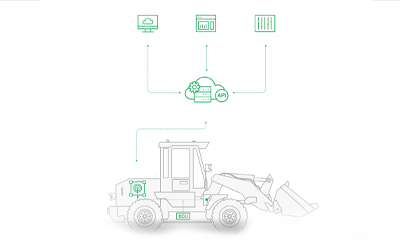 One of the most significant impacts of smart farming methods is the introduction of the IoT.
One of the most significant impacts of smart farming methods is the introduction of the IoT.
Internet of Things, shortly known as IoT is driving many industries towards the greater goal of digital transformation- automation.
The incorporation of IoT can set serious goals for the agricultural sector. The most convenient part of the IoT is that the technology itself collects and stores data in a central network.
This accumulation of data over a long period would be of great help in data engineering including data analytics.
Data analytics, more importantly, predictive analytics and diagnostic analytics can help many farmers to up their game.
Read Also- How the Sustainable Development Goals will be addressed with an Agricultural Data Tool?
Precision farming
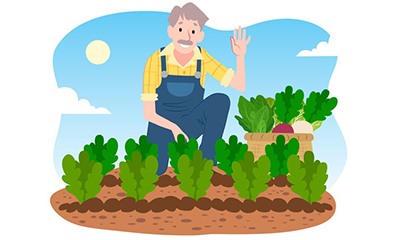
Precision farming has different names in the market. It is also known as satellite farming or site-specific crop management.
The concept of precision farming is to obtain greater yields while using minimum resources. Resources include water, land, pesticides, fertilizers, etc.
Precision farming leverages technologies like data engineering, robotics, analytics, custom software, etc. to obtain this goal. Precision farming can cut costs by 18-20% while increasing the yield by almost 30%.
This type of farming can be elevated to the next level by using robotics and sensors. Sensors can take an enormous load off of the farmers. This is because sensors are pre-programmed and are also equipped with sophisticated hardware to collect various data related to the process.
For instance, sensors when combined with effective software can recreate the topography with accurate details. This can be later used to monitor various metrics like the pH of the soil, cohesivity, density, mineral content, etc. Such technological advancement in smart farming is possible only through a scientific approach to the process.
What does the future hold?
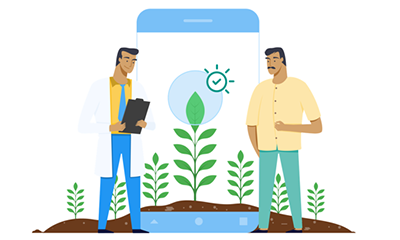 The future is ready for a green revolution of some sort. A third green revolution is completely based on leveraging scientific methods like genetic modification, cross-breeding, organic food production, leveraging IoT, etc.
The future is ready for a green revolution of some sort. A third green revolution is completely based on leveraging scientific methods like genetic modification, cross-breeding, organic food production, leveraging IoT, etc.
This doesn’t just focus on increasing the output but can change the way we perceive food quality. Providing quality food across the globe can look like an easy goal on paper but in reality, is one of the most ambitious goals ever.
Read Also – The Reality of Modern Farming Will Surprise You
Wrapping up,
The world is ready for smart farming technologies to take over but the real question is who is going to lead the drive? Is it going to be the farmers or the already established tech giants? Educating and spreading awareness among the traditional farmers on the benefits of incorporating smart technologies in their work process is the most organic way to push change, though this may be time-consuming and is subjected to criticism. Governments should intervene in these situations to form a bridge between the traditional and smart farming methods so that it helps the farmers with the transition process.
